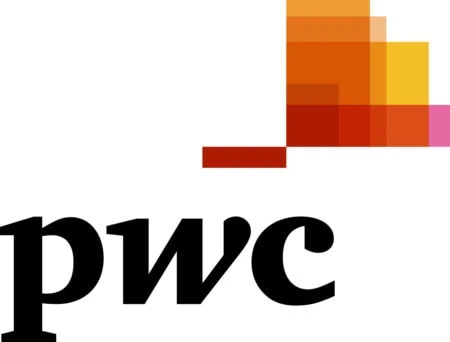As leading international finance centres (IFCs), the Channel Islands have a responsibility to leverage their expertise and role as conduits for capital to support the global transition to a more environmentally and socially sustainable economy.
The global sustainable finance regulatory landscape continues to evolve, with a particular focus on tackling greenwashing and enabling investors to select products in line with their sustainability preferences. In this blog we take a look at the opportunity for sustainable alternative investment funds in the Channel Islands, in particular those for promotion into the EU.
Increasing demand for sustainable funds
PwC’s recent global research report, Asset and wealth management revolution 2022: Exponential expectations for ESG, projects over US$33.9tn in ESG-oriented AuM by 2026, outpacing growth in the asset and wealth management market as a whole. This is clearly being driven by investor demand, with over 80% of US and European investors planning to increase their allocations to ESG products over the next two years.
The EU Sustainable Finance Disclosure Regulation (SFDR), which applies to all EU financial market participants, has had a significant impact within and beyond the European market. It captures alternative investment funds promoted by non-EU managers to EU investors through the National Private Placement Regime (NPPR), which allows non-EU alternative fund managers and funds to market in Europe without using the AIFMD passport. Although not originally designed to operate as a product labelling framework, in practice this is what the SFDR has become – with Article 8 products having sustainable characteristics; Article 9 products having sustainable objectives; and Article 6 products being those that do not integrate sustainability considerations into their investment processes.
Across our Channel Islands clients we’ve seen increased appetite for SFDR funds. Some are retrofitting existing funds as Article 8 in order to meet investor expectations for sustainability disclosures, whereas others are launching new Article 8 or Article 9 funds in response to investor demand. We’re also seeing funds outside the scope of SFDR seeking to make equivalent disclosures in order to meet investor expectations in other jurisdictions.
What we’ve also seen, however, is that there remains a misconception that in order for a product to be designated as Article 6, 8 or 9 under the SFDR, it must be domiciled within the EU. This is simply not the case; in fact there are a number of advantages to using non-EU IFCs such as Jersey and Guernsey to launch SFDR products. These advantages include:
Interoperability
The Channel Islands have long-recognised the importance of enabling access to and ensuring equivalence between international markets and are well positioned as enabling platforms, facilitating access to products that meet a variety of investor sustainability preferences.
With fast-changing ESG disclosure regulations in different markets, it is increasingly important for funds to take a strategic approach to compliance and reporting in order to meet requirements most effectively. For example, we are expecting further updates this year on how the FCA’s Sustainable Disclosure Regulation (the UK’s forthcoming product labelling regime, and which is not directly equivalent to the SFDR) will apply to overseas products. A Jersey or Guernsey neutral base supports a strategic multi-jurisdictional approach, and their agile and skilled financial services industries are well-placed to provide support. Importantly, this concept of interoperability with international frameworks applies to the full spectrum of available products, including but not limited to Certified Funds, Fund Services Businesses, Investment Businesses and Private Funds in Jersey; and Registered Funds, Authorised Funds and Private Investment Funds in Guernsey.
Guernsey has also introduced its own green investment products that are deliberately intended to align with internationally recognised frameworks. The Guernsey Green Fund (GGF) is a designation granted to funds that mitigate environmental damage, consistent with current and emerging standards such as the SFDR. The Natural Capital Fund designation is granted to funds that direct resources towards efforts to preserve and rebuild the planet’s natural capital, and its criteria align with internationally recognised frameworks such as the UN’s Post-2020 Global Biodiversity Framework, the UN SDGs and the EU Taxonomy.
The islands have not, however, disregarded the need to address sustainability risks from a jurisdictional reputation perspective. Both islands have anti-greenwashing legislation to address mislabelling risk of sustainable finance products and services, but without prescribing templates for disclosures – allowing funds to meet their obligations using existing templates (such as those required under the SFDR). The Guernsey Financial Services Commission (GFSC) has also amended its Code of Corporate Governance to ask companies to consider the financial impact of climate change and, where appropriate, make disclosures, again without prescribing templates but encouraging alignment with international best practice. We anticipate that any future sustainable finance regulatory developments in the Channel Islands will be similarly flexible and underpinned by global standards.
Efficiency
Non-EU AIFMs arguably have an advantage over EU AIFMs, as non-EU AIFMs are only in scope of the SFDR in respect of each fund they market through the NPPR. This means they’re only required to make fund-level disclosures in respect of funds that are registered for marketing in the EU; whereas EU AIFMs must comply with additional manager-level provisions such as publishing information about the integration of sustainability risks in their investment decision-making process on their websites.
Another advantage of using Jersey or Guernsey arises when a manager already has existing funds based here. The same administrators can service both SFDR and non-SFDR products; thereby creating economies of scale that can lead to reduced costs, retention of institutional memory and time savings. This allows managers to use the Channel Islands as a “one-stop shop” for both SFDR and non-SFDR products.
Credibility
Centres for sustainable finance are only credible if they operate in a sustainable manner from a sustainable location; and with this in mind, both islands’ governments have made domestic commitments to net zero by 2050. On a practical level, the grid carbon intensity of both islands’ electricity systems benefits from low carbon electricity from France and is already roughly only a tenth of the UK’s current supply. The transition to a green economy is already well underway on both islands, as we have previously highlighted in our Green Jobs Barometer for the Channel Islands.
Both islands are members of the UN Financial Centres for Sustainability (FC4S) Network and several other international groups sharing experience and taking action to accelerate sustainable finance. They have also committed to ensuring they have the high-quality infrastructure needed to service the increasing demand for ESG-oriented products, and there are growing communities of skilled ESG professionals on both islands.
Conclusion
It is important that investors, managers and gatekeepers alike are aware of the full array of options available when looking to launch an Article 6, Article 8 or Article 9 product under the SFDR. There are advantages in considering use of IFCs such as Jersey and Guernsey, in particular when considering long term interoperability, efficiency and credibility of products.
Looking for further support with your sustainable finance regulatory implementation and reporting? Our experienced team can provide a range of both advisory and assurance services to help you. Please feel free to get in touch.

Alison Cambray Advisory Director, PwC Channel Islands
alison.cambray@pwc.com
+44 7700 838337

Tori Davis Advisory Senior Manager, PwC Channel Islands
tori.davis@pwc.com
+44 7797 911714

